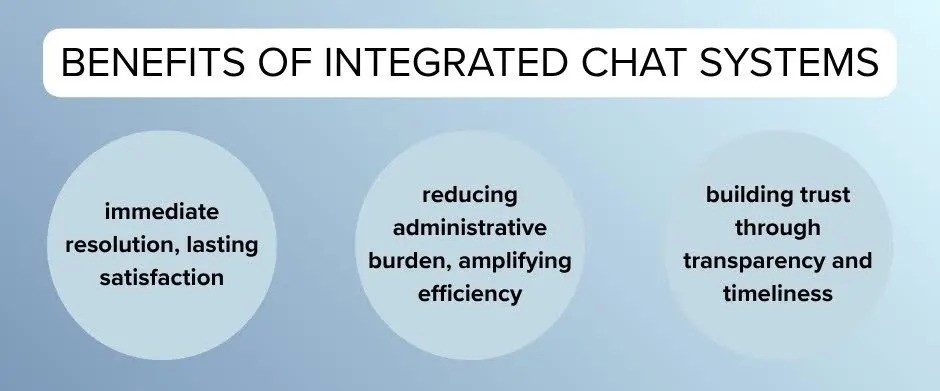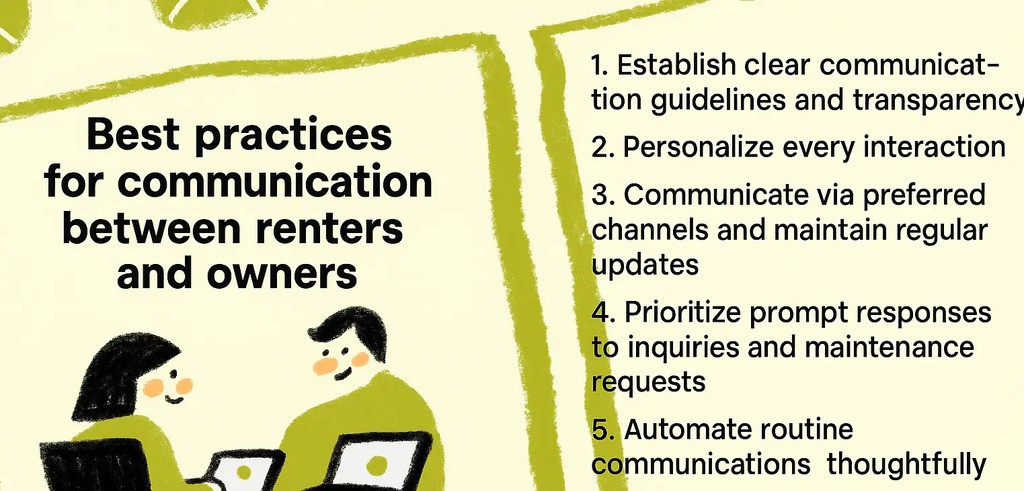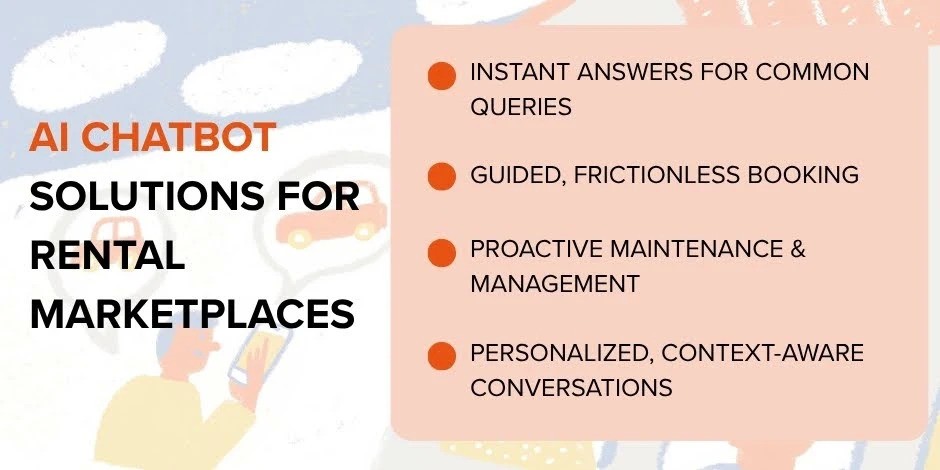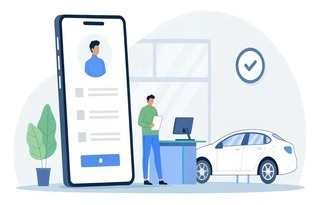Roobykon Software understands that seamless communication in any marketplace is the backbone of trust, efficiency, and satisfaction in the rental ecosystem. Integrated chat and messaging systems have emerged as the bridge that connects renters and owners, transforming what was once a fragmented, frustrating process into a streamlined, responsive dialogue that benefits everyone involved. This is just as critical in the vehicle sector, where rental car online chat systems are revolutionizing customer service. Moreover, it represents one of the key trends in the car rental industry.
Real-time interaction does more than facilitate quick exchanges – it builds confidence. When renters can instantly reach out with questions via a car rental live chat and receive prompt responses, they feel valued and heard. This immediate connection is a key advantage that car rental chat provides, ensuring clarity on terms, vehicle availability, and special requests. When owners and rental companies can efficiently manage multiple inquiries without drowning in emails or missed phone calls, they can focus on what truly matters: providing quality vehicles and exceptional service.
The data speaks volumes about the importance of this shift. In 2024, peer-to-peer rental apps captured over 68% of the U.S. North American market, highlighting the explosive growth of platforms that prioritize direct, integrated communication between users. The demand for instant connection, like a responsive car rental chat function, is no longer a luxury but a standard expectation for modern consumers. For those looking to start a car-sharing marketplace, prioritizing communication from day one is crucial.
The transformative benefits of integrated chat systems

Immediate resolution, lasting satisfaction
Time is currency in the rental world. A delayed response to a potential renter's inquiry – whether for a home or a message asking for a rental car – could mean losing them to a competitor. An unanswered question or maintenance request from a current user could escalate into a larger, costlier problem. Integrated chat systems eliminate these pain points by enabling immediate query resolution and faster negotiation between renters and owners.
Consider the typical scenario: A prospective tenant or a traveler finds a listing or a vehicle they love, but has specific questions. With traditional communication methods – email or phone tags – the response might take hours or even days. With an integrated system like a rental car life chat, the answer arrives in seconds, keeping the prospect engaged and moving them closer to completing a booking.
This immediacy is expected. Customers identify valuing their time as one of the most important drivers of good customer service. When renters feel their time is respected through quick, efficient communication, satisfaction soars and loyalty deepens.
Reducing administrative burden, amplifying efficiency
For property owners and platform operators, managing communication across multiple channels (email, phone, text messages) creates a chaotic, time-consuming workflow. This is where automation shines; an AI-powered chatbot can handle routine messages, freeing up human agents for complex issues.
Integrated car rental assistants consolidate all communication into a centralized hub within the rental platform itself. Every conversation, document exchange, and update lives in one accessible location. This reduces administrative workload dramatically, allowing owners to manage more properties without sacrificing response quality and enabling platform operators to maintain oversight and provide support when needed.
Building trust through transparency and timeliness
Trust is the invisible force that transforms casual browsers into committed renters and satisfied customers into long-term advocates. Timely updates – whether about application status, maintenance schedules, or rent reminders – demonstrate professionalism and reliability.
Integrated car rental chatbots improve renter satisfaction through these timely updates and support, creating a transparent communication environment where both parties feel informed and empowered. When users know they can reach a manager or AI-agents in the rental support system instantly, anxiety decreases and confidence in the rental relationship increases.
The anatomy of effective chat systems: key features that matter
Not all chat systems are created equal. To truly enhance the rental experience, integrated communication platforms must offer robust, thoughtfully designed features that address the real-world needs of renters and owners. This is especially critical in high-value sectors, where a superior customer support system for the car rental marketplace can become a key competitive advantage. These components are among the top features for car-sharing marketplace platforms.
- Multi-user collaboration and group communication: Rental relationships often involve more than two parties. Property managers, maintenance teams, co-owners, and sometimes even guarantors need to be part of the conversation. Group chat or multi-user support enables seamless collaboration, allowing all relevant stakeholders to stay informed and contribute to problem-solving in real time. This transparency is a fundamental way how to build trust in the car rental marketplace and other rental ecosystems, as it demonstrates organization and a commitment to resolution.
- Document sharing and visual communication: Words alone aren't always enough. The ability to share documents, photos, or even report important messages inside rental cars via photo transforms chat from a simple text exchange into a comprehensive communication and documentation platform.
- Searchable history and accountability: Memories fade, details get fuzzy, and disputes sometimes arise about what was promised or agreed upon. Message history and search functionality provide an indisputable record of all communications, offering protection and clarity for both renters and owners.
- Human touch meets AI efficiency: 24/7 Support Integration: The most sophisticated chat systems leverage the best of both worlds: human expertise and artificial intelligence. Integration with 24/7 customer support, including live human agents and an AI chatbot solution, ensures that help is always available, regardless of time zones or business hours. The live chat software market is expected to grow significantly, with the global market size projected to reach $2.04 billion by 2029 at an 11% annual growth rate.
- Presence indicators: Small details create big differences in user experience. User presence indicators, including online status and typing indicators, add a human dimension to digital communication, making a vehicle rental assistant or property manager feel more like a responsive partner. When renters see that an owner is online or actively typing a response, anxiety decreases and patience increases.
Best practices for communication between renters and owners

Technology provides the infrastructure, but an effective communication rental service is ultimately a human craft. Even the most advanced integrated AI rental systems can fall short if the tone, timing, and transparency of messages are mishandled. For rental marketplaces striving to elevate both user experience and operational excellence, success depends on building a culture of clarity, empathy, and responsiveness – powered by the right digital tools.
Below are the best practices Roobykon Software encourages every rental platform to embed directly into its communication framework.
1. Establish clear communication guidelines and transparency
Consistency breeds trust, which is fundamental to all communication between renters and car owners.
From the very first interaction, both renters and owners should understand how and when communication will occur. Platforms can set these expectations through automated welcome messages, predefined response time standards, and transparent communication policies built into the chat interface.
For example, an integrated dynamic/preconfigured onboarding message might outline:
- How quickly users can expect a response.
- Which topics should be handled through chat (e.g., rent payments, repairs).
- The escalation path for urgent issues.
By making expectations visible and uniform, marketplaces not only reduce friction but also foster accountability between both sides of the rental relationship.
2. Personalize every interaction
Personalization transforms transactional exchanges into meaningful relationships. Addressing renters by name, referencing their specific property, and using contextual details from their rental history make conversations feel relevant and respectful.
Integrated chat systems with robust real-time chat features can easily support this personalization through dynamic message templates, CRM synchronization, and user data tagging.
For instance, instead of sending a generic reminder like “Your rent is due soon,” the system could say:
“Hi Alex, just a reminder that your rent for the Greenview Apartment is due on the 5th. You can complete payment directly on the platform.”
Such small touches create human warmth within digital interactions, building long-term loyalty and comfort – two critical drivers for renter retention.
3. Communicate via preferred channels and maintain regular updates
Not every renter prefers the same mode of communication.
Some rely on the built-in chat of the web platform, others on the mobile application, and many on email summaries. A flexible system allows users to choose their preferred channel, ensuring they stay informed without feeling overwhelmed.
Meanwhile, owners and managers can maintain engagement by sharing proactive updates:
- Maintenance schedules and inspection dates.
- Lease renewal or rate change deadlines.
- Policy or pricing changes.
This is also essential for sensitive topics, such as how to communicate a rental increase effectively, where clear, timely, and documented messaging is crucial.
Regular communication, delivered through chosen channels and supported by notifications for urgent matters, prevents confusion, reduces the volume of support requests, and demonstrates professionalism on the part of the platform and property owner alike.
4. Prioritize prompt responses to inquiries and maintenance requests
Speed is service. When renters raise an issue (especially a maintenance concern), a delayed reply can quickly erode trust.
An integrated chat system can help by:
- Automatically sending an auto reply message to acknowledge incoming messages, setting clear expectations for follow-up.
- Routing maintenance requests to the correct team or contractor instantly.
- Escalating unresolved issues after a certain timeframe.
By combining automation with responsive human oversight, marketplaces ensure that every message receives timely attention, reinforcing confidence and satisfaction among both renters and owners.
5. Automate routine communications thoughtfully
Automation should enhance the communication rentals, not depersonalize it.
Used correctly, automated messaging can keep users informed without overwhelming them with notifications. The goal is efficiency with empathy.
Here’s how to apply automation intelligently:
- Trigger-based messages for rent reminders, lease renewals, and maintenance confirmations.
- Smart frequency control, preventing repetitive alerts and message fatigue.
- AI moderation that tailors tone and timing based on user behavior.
For example, if a renter has already acknowledged a rent reminder, the system should automatically suppress duplicate follow-ups, ensuring users receive only relevant, actionable updates.
This measured approach turns understanding how does a B2B marketplace build trust with customers into an asset: reducing manual effort while maintaining a consistent, courteous digital voice across the platform.
AI chatbot solutions for rental marketplaces

For any platform considering how to add a messaging system in a car rental marketplace, AI chatbots provide the most efficient and scalable foundation. These automated agents handle common inquiries, guide bookings, and offer personalized help, operating 24/7 without human intervention. Leveraging advanced AI integrations is one of the most impactful key trends in the car rental industry.
By combining artificial intelligence and natural language processing, a modern car rental chatbot can simulate natural conversation while delivering precise, consistent, and instant responses at scale.
1. Instant answers for common queries
Marketplace questions are often predictable: booking steps, rental terms, or deposit policies. An AI-powered chatbot can resolve these routine inquiries instantly, freeing human agents to manage complex issues. This reliability is fundamental to building trust in car rental marketplaces, as it shows competence and responsiveness from the very first interaction.
2. Guided, frictionless booking
A well-trained chatbot acts as a digital concierge, simplifying the entire rental process. It can:
- Recommend vehicles based on budget and trip needs.
- Guide users through form completion and payment.
- Confirm document submissions.
This hands-on assistance reduces user drop-offs and turns support into successful conversions.
3. Proactive maintenance & management
An AI-powered chatbot excels at proactive asset management. Renters can report issues like "My check engine light is on," and the chatbot automatically creates a maintenance ticket. It can also notify owners of upcoming service schedules or document renewals, ensuring the fleet stays in top condition.
4. Personalized, context-aware conversations
Beyond simple answers, NLP allows chatbots to understand intent and context. For a returning renter asking, "Can I get the same SUV?", the AI chatbot can recall history and reply: "The 2023 Ford Escape you rented last time is available. Would you like to reserve it?" This transforms a generic interaction into a personalized experience.
The ideal partnership: AI efficiency + human expertise
The most effective system leverages the strengths of both AI and human teams. As your comment suggests, a chatbot is exceptionally useful for explaining platform rules, services, and processes. It handles the foundational, repetitive work – the "what" and "how" of your platform.
This setup then allows you to enable chat between renters and owners for the nuanced conversations that truly require a human touch. Human agents are freed to handle complex disputes, unique customer situations, and build deeper relationships. By automating the routine, you ensure that human intervention is reserved for matters that genuinely benefit from empathy, judgment, and creativity.
How Sharetribe’s native messaging system works
Sharetribe, one of the most popular marketplace frameworks, has long recognized that communication drives conversion. Its native messaging system is designed to simplify how to enable chat between renters and owners. Sharetribe allows users to connect, negotiate, and build trust directly within the platform.
At its core, Sharetribe’s messaging system is a transaction-driven communication channel. Instead of scattered messages across different listings or inboxes, every conversation in Sharetribe is tied directly to a transaction or listing, ensuring that users always communicate within context.
Here’s a closer look at how it operates:
- Contextual messaging: When a renter expresses interest in a property or vehicle, a private message thread automatically opens between the renter and owner. This ensures all dialogue remains tied to a specific transaction.
- Message history & notifications: Every message is stored within the user’s dashboard and complemented by email notifications to keep both sides informed, even when they’re offline.
- Secure internal channel: All communication happens within the platform, protecting user privacy and minimizing the risk of off-platform transactions.
- Moderation & monitoring: Marketplace administrators can moderate conversations when needed, preserving platform integrity and ensuring compliance with communication policies.
While Sharetribe’s messaging is intentionally simple, it offers a robust foundation that can be customized to align with the brand identity and operational requirements of your rental marketplace – whether that means enhancing it with AI chatbots, integrating CRM tools, or developing advanced real-time interfaces.
Optimizing this core communication tool is one of the key areas to focus on after launching a marketplace to improve user trust and drive repeat business.
FAQ
1. How can messaging help me increase trust and bookings on my marketplace?
Trust and responsiveness are the twin currencies of any successful marketplace. Integrated messaging lets renters and owners communicate directly, ask clarifying questions, and address concerns instantly – reducing uncertainty and improving conversion rates. When users feel heard, they’re far more likely to commit to a booking.
2. Do I need a built-in chat system for my car rental marketplace, or is email enough?
Email alone rarely meets the expectations of modern renters. While it’s useful for formal documentation and notifications, it lacks real-time responsiveness, context, and immediacy – all critical for time-sensitive rentals like cars or vacation properties. A built-in chat system enables users to negotiate details, share photos, and confirm availability instantly – without leaving the platform.
3. How does Sharetribe handle communication between renters and car owners?
Sharetribe’s messaging flow is designed to mirror the rental journey. Once a renter initiates contact through a listing, the system automatically opens a private message thread between the renter and owner. Every subsequent message (from negotiation to confirmation) remains connected to that listing or transaction.
4. Can I set up real-time chat in Sharetribe?
Sharetribe's native messaging is not real-time chat in the traditional sense. It operates as an asynchronous messaging platform – when a user sends a message, the recipient receives an email notification within minutes and can reply via email or by logging into the marketplace. For most car rental scenarios, this works perfectly since rentals are typically planned hours or days in advance.
5. What are the limitations of Sharetribe's messaging system?
Sharetribe's messaging is deliberately minimal, focusing on core functionality: no read receipts, typing indicators, voice messages, or rich text formatting; no multi-party or group conversations; limited ability to search through conversation history; international users need their own translation solutions. Despite these limitations, hundreds of successful rental marketplaces thrive on Sharetribe.
6. What third-party tools can I use to improve customer support on my rental platform?
Popular third-party chat and support tools include CometChat, Stream Chat, QuickBlox, LiveChat, and Intercom. These solutions offer real-time messaging, AI chatbot integration, multi-channel support, file-sharing, and advanced moderation features to enhance your marketplace’s communication and customer support capabilities.










